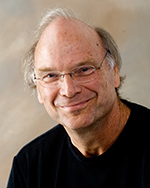 |
Professor of Philosophy |
Background
B.A., Harvard University
Ph.D., Brown University
Dr. Ted Schick is Professor of Philosophy and Director of the Muhlenberg Scholars Program at Muhlenberg College. Born in Davenport, Iowa, he received his B.A. from Harvard University and his Ph.D. from Brown University. He has received the Lindback award for Distinguished Teaching as well as a Hoffman Research Fellowship. In addition to creating the Muhlenberg Scholars Program, he also created and directed Muhlenberg’s First Year Seminar Program and served as the Director of Academic Computing. He has authored three texts: How to Think About Weird Things: Critical Thinking for a New Age (with Lewis Vaughn), Doing Philosophy: An Introduction Through Thought Experiments (with Lewis Vaughn), and Readings in the Philosophy of Science: from Positivism to Postmodernism. He serves on the editorial board of Philo and has published numerous articles on the nature of knowledge, reality, and value. His work also appears in a number of volumes of Open Court’s Philosophy and Popular Culture series including: Seinfeld and Philosophy, The Matrix and Philosophy, The Lord of the Rings and Philosophy, More Matrix and Philosophy, Star Trek and Philosophy, Led Zeppelin and Philosophy as well as Blackwell’s Beer and Philosophy. His articles have been reprinted in a number of publications including: Toward a New Political Humanism, edited by Barry Seidman and Neil Murphy; God edited by Timothy Robinson; The Improbability of God, edited by Michael Martin, Science, Religion, and Society: an Encyclopedia of History, Culture, and Controversy, edited by Arri Eisen and Gary Laderman, The Skeptic Encyclopedia of Pseudoscience edited by Michael Shermer; Culture Wars, edited by Mary E.. Williams, Philosophy and Contemporary Issues, edited by Burr and Goldinger, and Introduction to Philosophy: Knowledge, God, Mind, Morality, edited by David Ohreen. His current teaching interests include, philosophy of science, philosophy of mind, and biomedical ethics.

